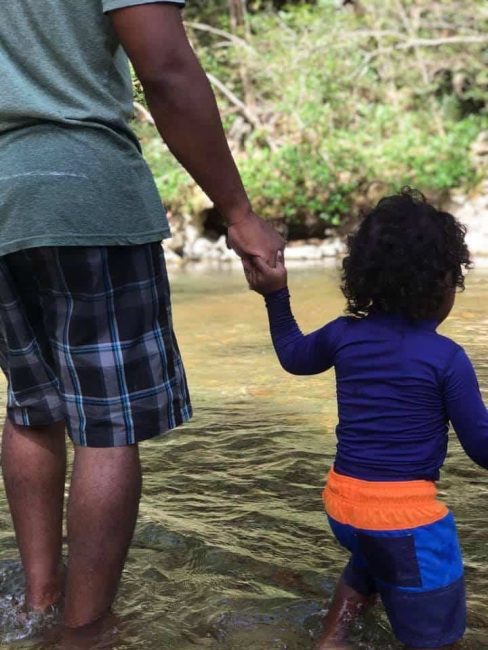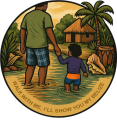Why I’m Starting a Water Research Project in Belize
Water runs through everything in Belize. It shapes our seasons, feeds our rivers, and holds the stories of our people. From the mist rising off the Maya Mountains to the waves breaking on the reef, water is how this land breathes.
I grew up watching rivers swell and shrink with the rains. In San Ignacio, the Macal and Mopan Rivers aren’t just scenery — they are sources of clay for pottery, a racecourse for canoes, and a reminder that life depends on what flows downstream. In Placencia, the sea tells its own truth: one year it brings clear blue days, another year it covers the beach in seaweed. I’ve seen sandbars appear and vanish, islands wash away and come back again.
These changes are not just weather. They are signs. Signs that water is teaching us about balance, about resilience, and about what we stand to lose if we don’t listen.
My Turning Point
In 2008, the Kendal Bridge was completely washed away by a flash flood. At the time, I thought it was a rare disaster, something that might happen once in a generation. But over the years, I noticed more and more sudden downpours that filled up areas quickly, even in places that never used to flood.
Since around 2022, the rains have changed again. They come faster and harder, almost too quick for the land to handle. Instead of soaking into the soil, the water rushes away. The ground doesn’t feel saturated enough anymore, and that leads to quicker runoff. I was a parent at first, worried for my family’s safety, but eventually I realized this wasn’t just fear — the land itself was changing.
Research on the Belize River Watershed backs this up: surface runoff has increased by almost 25%, while evapotranspiration — the natural way the land releases water back into the air — has decreased by more than 3%. That means the soil holds less, the rivers carry more, and floods come faster.

The Research I’m Beginning
As a licensed guide, I spend most of my days outdoors. Every tour — whether it’s into the caves, the ruins, or the reef — is also a chance to observe water. I’ve decided to start writing those observations down and turning them into a living record.
This project will track:
- Rain & Seasons – when the first rains fall, how quickly the water runs off, how long the land holds it. → Record What’s the temperature like throughout the year
- Rivers & Lagoons – whether the water runs clear or green, whether fish and birds are active, whether floods rise too quickly.
- Caves – the underground rivers, how high they climb, what happens when they flood, what the dripstones whisper about time.
- Sea & Coast – clarity for divers and snorkelers, the rise and fall of tides, the arrival of sargassum, the erosion or growth of beaches.
- Community Notes – what elders say about “before,” how potters, fishers, and farmers depend on water, what stories we pass on.
This is not about numbers alone. It’s about memory, culture, and resilience.
Why It Matters
Water is one of the most important forces in Belizean life, and yet it is often invisible until there is too little or too much. By keeping track — carefully, season after season — I hope to build a picture that blends science with story.
- For travelers, this will help explain why the seasons feel the way they do.
- For communities, it is a way to honor and record what we already know.
- For conservation, it is a piece of local knowledge that can join the global fight against climate change.
Walk With Me
I’m starting small — with my own notes, my tours, and the wisdom of those I meet along the way. But I believe this can grow into something bigger: a living record of Belize’s water, told by Belizeans themselves.
If this project speaks to you, follow along. If you’re part of a group, university, or organization working on water, reach out. And if you’re just curious, ask me the next time we’re by a river or the reef.
Water has always shaped Belize. Maybe now, by paying closer attention, we can let it shape us back.
👉🏽 This is not a tourism ad. It’s a story. And it’s mine. If it speaks to you, pass it on.

